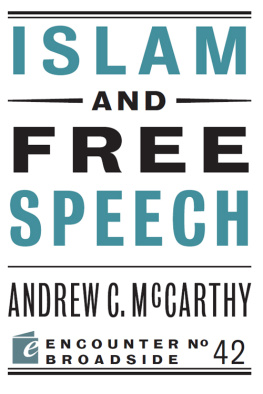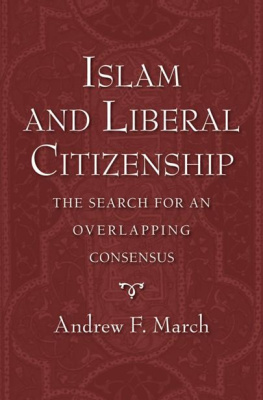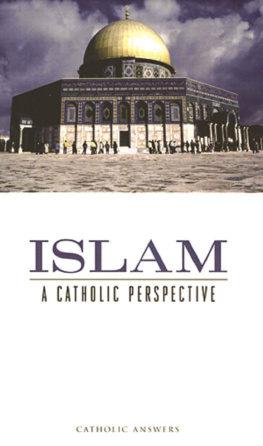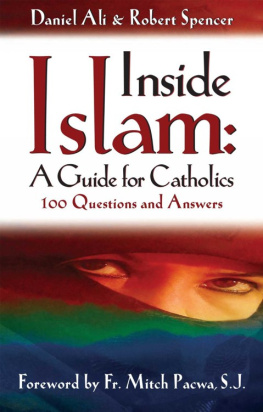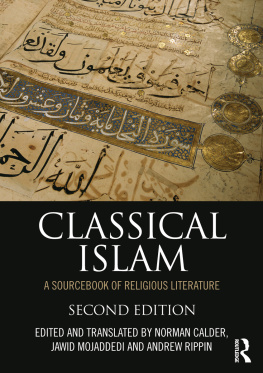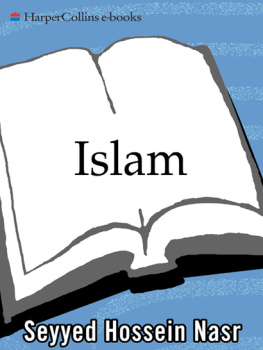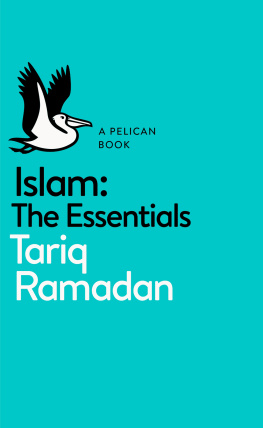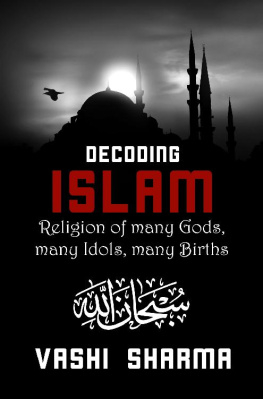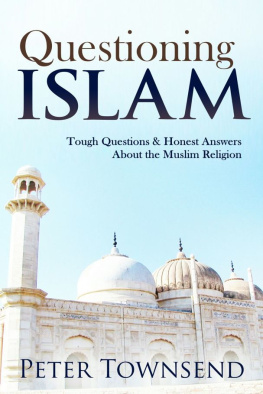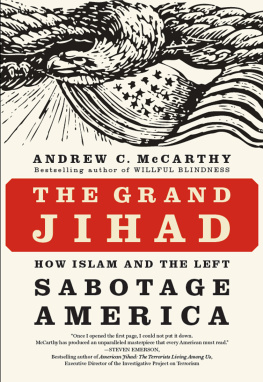Andrew Bieszad - 20 Answers- Islam
Here you can read online Andrew Bieszad - 20 Answers- Islam full text of the book (entire story) in english for free. Download pdf and epub, get meaning, cover and reviews about this ebook. year: 2016, publisher: Catholic Answers Press, genre: Religion. Description of the work, (preface) as well as reviews are available. Best literature library LitArk.com created for fans of good reading and offers a wide selection of genres:
Romance novel
Science fiction
Adventure
Detective
Science
History
Home and family
Prose
Art
Politics
Computer
Non-fiction
Religion
Business
Children
Humor
Choose a favorite category and find really read worthwhile books. Enjoy immersion in the world of imagination, feel the emotions of the characters or learn something new for yourself, make an fascinating discovery.
- Book:20 Answers- Islam
- Author:
- Publisher:Catholic Answers Press
- Genre:
- Year:2016
- Rating:4 / 5
- Favourites:Add to favourites
- Your mark:
- 80
- 1
- 2
- 3
- 4
- 5
20 Answers- Islam: summary, description and annotation
We offer to read an annotation, description, summary or preface (depends on what the author of the book "20 Answers- Islam" wrote himself). If you haven't found the necessary information about the book — write in the comments, we will try to find it.
20 Answers- Islam — read online for free the complete book (whole text) full work
Below is the text of the book, divided by pages. System saving the place of the last page read, allows you to conveniently read the book "20 Answers- Islam" online for free, without having to search again every time where you left off. Put a bookmark, and you can go to the page where you finished reading at any time.
Font size:
Interval:
Bookmark:
20 Answers
Islam
Andrew Bieszad

20 Answers: Islam
Andrew Bieszad
2015 Catholic Answers
All rights reserved. Except for quotations, no part of this book may be reproduced or transmitted in any form or by any means, electronic or mechanical, including photocopying, recording, uploading to the Internet, or by any information storage and retrieval system, without written permission from the publisher.
All citations from the Quran from the Yusuf Ali translation.
Published by Catholic Answers, Inc.
2020 Gillespie Way
El Cajon, California 92020
1-888-291-8000 orders
619-387-0042 fax
catholic.com
Printed in the United States of America
978-1-941663-29-5
978-1-941663-30-1 Kindle
978-1-941663-31-8 ePub
Table of Contents
Introduction
With more than a billion followers and fourteen centuries of history, Islam is one of the worlds great religions. Among all the worlds religions, however, no other has posed as great a challenge to the Catholic Faith. Muslims and Christians have attempted to convert and conquer each other since their first encounters more than a millennium ago, and in the present day Islamic militancy presents an ever-growing threat to Christians around the world.
Islam claims to be derived from the same Abrahamic faith tradition as Christianity, but in many ways the two religions are as different, and as incompatible, as oil and water. What are these differences? And how can we articulate them to others?
My goal in writing this book was to give Christians, and Catholics especially, a basic introduction to Islam: its beliefs, its practices, and its unique challenges to the Faith today. It is my hope this booklet will serve as a firm guide in learning more about this fascinating religion, and as a mission-challenge to the Church in the years to come.
1. What is Islam?
Islam is a religion founded in the year 610 by an Arab named Muhammad who lived near what is today Mecca, Saudi Arabia. The word Islam means submission:Islam teaches that its beliefs are Allahs (Gods) ordained way of existence, to which all creation must submit. The central creed of Islams believers, called Muslims, can be found in the concise profession of faith known as the shahada, which says that there is no God but Allah, and Muhammad is his prophet.
Islam teaches that Allah, who is the supreme, all-powerful, wholly transcendent God, revealed Islam to different peoples throughout human history. However, all those peoples distorted it with human innovations, which led to social deviancy and corruption. This corruption affected Jews, Christians, Hindus, and pagans throughout the world, causing Allahs pure religion to be obscured. Therefore, Allah appointed a manMuhammadwho, through the angel Gabriel, would reveal Islam in its pure form to all mankind for the last time.
Muslims often say that Islam is made of five pillars . These are basic teachings with parallels in many religions: 1) belief in Allah and his revelations, 2) praying five times a day, 3) giving 2.5 percent or more of ones income to Islamic causes, 4) fasting for one month a year during the Islamic calendar, and 5) making a pilgrimage to the city of Mecca to walk around the Kaba, a large cube shaped structure venerated as the first temple dedicated to Allah.
Islams main place of worship is the mosque , often identifiable by elaborate domes and long towers called minarets. A strict Muslim aversion to idolatry means that mosques never contain the figurative religious artimages and statues of God, saints, and so onoften found in Christian churches. For the majority of Islam, religious leaders called imams direct prayer services in mosques, undertake theological scholarship, and exercise pastoral authority.
Islamic history during Muhammads lifetime is generally broken into two periods. The first, called the Meccan Period, lasted from 610 to 622 and produced about a quarter of Islamic teachings. During this time, Islam was a religious cult in the city of Mecca led by Mohammad; preached general morality and made vague threats of punishment in the afterlife for disobedience. Many of the Arabs became annoyed by Muhammads preaching, and in 622 he was expelled from Mecca and at the request of the Jewish community he was received in the city of Yathrib, which Muhammad later renamed Medina.
This year marks both the start of the Islamic calendar and the establishment of Islam as a political entity. In this period, called the Medinan Period, Muhammad implored the Jews to convert to Islam, and when they refused, he almost immediately changed his message and began to preach violence against them and all who opposed him. This continued and increased in severity up until his death in 632.
During this same period, Muhammad assembled a small band of caravan raiders, which eventually grew into a large army that helped him conquer the entire western Arabian coastline. After his death in 632, these armies set out to conquer the world. Between the years of 632 and 732, Muslims overran all the territory from what is today western Pakistan across the Mediterranean to central France, converting or subjugating the Christian peoples they defeated. Were it not for the Frankish king Charles Martel, who after a three-day battle bested the Muslim forces at Poitiers, France, in 732, it is possible that all of Europe would be Muslim today.
By the year 748, this first great Islamic empire, known as the Umayyad Caliphate, had reached the zenith of its power through its conquest of what is today Uzbekistan and parts of western China. The Umayyads power began to decline shortly thereafter, though, and most of the Islamic world was politically divided into different and competing governments. Since then, there have been a few other notable Muslim powersparticularly the Ottomans, who conquered Constantinople in the fifteenth century and expanded from what is today Turkey through Byzantine Christian lands before being definitively turned back in central Europe in the seventeenth. Today, Islams largest populations are found in the Middle East, North Africa, Asia Minor, Central and Southeast Asia, and some Balkan countries, but its numbers are growing in Western Europe, Russia, and China.
2. Who was Muhammad?
Muhammad was an Arab and the founder of Islam. The details of his early life remain shrouded in mystery, but according to Islamic lore, he was born in 570 to a rich man from the Quraysh, one of many quasi-nomadic Arabian tribes from the western coast of Arabia by the Red Sea. He never knew his father, his mother died when he was six, and he was raised by his uncle, a caravan driver, with whom Mohammad regularly traveled on trips from their home in Mecca to the Holy Land and Yemen.
Muhammads life was typical of a merchant of his time. When he was 25, he married a wealthy widow named Khadija bint Khuwaylid, fifteen years his senior, and fathered six children with her. In his late thirties he retired from trading and became interested in religion. Arabia was the designated place of exile for Christian heretics from the Byzantine Empire, and his city, Mecca, had been an outpost along the Silk Road since the second century B.C., so Muhammad likely encountered many different kinds of people from across the known world.
According to Islamic tradition, one day, when Muhammad was forty, he went out to a cave at Mt. Hira, on the outskirts of Mecca, to meditate.While he was meditating, an unknown spiritual being suddenly descended upon him, grabbed him so hard he could barely breathe, lifted him into the air, and demanded that he read a sentence it wrote in the sand. Muhammad, who was terrified during the entire experience, claimed that he could not read. The being squeezed him even harder and again demanded that he read, to which Muhammad gave the same response. Finally, on the third time, Muhammad miraculously was able to read the words that were revealed to him:
Next pageFont size:
Interval:
Bookmark:
Similar books «20 Answers- Islam»
Look at similar books to 20 Answers- Islam. We have selected literature similar in name and meaning in the hope of providing readers with more options to find new, interesting, not yet read works.
Discussion, reviews of the book 20 Answers- Islam and just readers' own opinions. Leave your comments, write what you think about the work, its meaning or the main characters. Specify what exactly you liked and what you didn't like, and why you think so.


